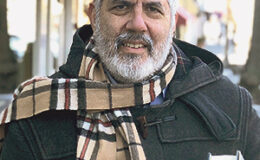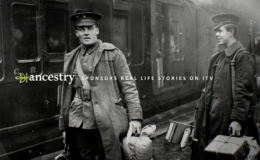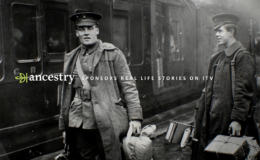When I was growing up, someone was always asking a member of our family, “Where are you from?” Usually, it was my mother. She has high cheekbones, deep, wide-set eyes and light brown skin with prominent freckles.
Since we grew up in an area with a small black population, her appearance drew more notice than I think it would have elsewhere. Whoever was asking usually wanted to claim her as their own.
Once, my sisters, our mother and I were in an epic, four-way fight in the car while holiday shopping. As our mother steered us out of the parking garage, the lot attendant waved her payment away. He was from Ethiopia and assumed she was too. He complimented her on what a great mother she must be — our windows had been rolled up, so he hadn’t heard the yelling.
I don’t look like my mother. When I was younger and people asked, “Where are you from?” they usually wanted confirmation of my West Indian heritage. “My dad is from Barbados,” is how I usually answered the question of why I had the face I had.
“Where are you from?” is a question we sometimes think we can find an answer to with DNA. One of my first jobs out of college was coordinating a community African-American genealogical class in Bedford-Stuyvesant, Brooklyn. It was run by a married couple from New Jersey, a former police officer and a former private investigator who dedicated their retirement to black genealogy. They had said in the class that DNA testing was a tricky thing for black people trying to trace their past.
Different DNA testing companies have different proprietary DNA databases. This means you can get a different result depending on which company you use. If the company you’ve chosen doesn’t include information about your particular genetic background in its database, it may simply report that you don’t have that ancestry.
If you have African ancestry, it becomes even trickier. The African slave trade to the United States ended, with some exceptions, more than 170 years ago. If you are matching your DNA to a database of African populations you are usually comparing yourself with present-day population samples, not the DNA of someone who may have lived in that area 170 or even 200 or 400 years before. Also, there is more genetic variation among African people than among Europeans, yet much of the information in the most popular commercial DNA databases contains only a fraction of the full African DNA spectrum.
But people still believe in DNA and want it to reveal some “truth” about the depth and reach of family history. The scholar Alondra Nelson, author of the book “The Social Life of DNA,” wrote about the “democratization of DNA analysis” and asked this important question: Why is DNA analysis deemed to proffer more valuable or reliable information about a person’s familial history than their own words?
For my mother’s family, like all African-American families, the question of “Where are you from?” is a complicated one. My great-grandfather on my mother’s side was Lumbee. The Lumbee are a tribe from North Carolina that includes the descendants of free Africans who married Native Americans. They were not recognized by the federal government and by some other tribes because of this.
A DNA test would not reveal any of this history. It would not tell me anything about one of the enduring stories in my family, that my great-grandfather helped to found schools for his people at the turn of the last century and was forced to leave North Carolina when his entire town was burned to the ground, presumably by people who disliked the town’s organizing.
He came north. He went to Dartmouth College. He studied there in the early 1900s, amid the rise of eugenics movements. He was with a handful of other black students. One of them, lighter-skinned, remembered him only as “that little black man.” His skin was the darkest of all of them. When he graduated from Dartmouth, he was still listed in the New Hampshire census as a popcorn seller.
Many northern white universities would not hire a black English professor in 1910. He left his family to travel the South for decades, teaching at black colleges. He created my grandmother, one of the strongest, most-loving, smartest women I ever knew. I was terrified of her for most of my life.
She moved to an all-white suburb of Boston at the start of the 1950s to make sure that her children had access to a good education. She worked for years as an administrative assistant at Harvard University and opened her doors to international students in the Boston area every Thanksgiving. She, too, had a school — an informal one she ran for my mother and her siblings during the summer so that they could be twice as good as everyone else once they got to school in the fall.
If I were to have a child now, its DNA would not contain any trace of any of this story and would certainly not act as evidence to support it. I would, perhaps, look to see whether it loved books and education as much as its maternal ancestors did. But DNA would not reveal whether a child I had now would have the fortitude to survive the world it would be born into.
If I had a child now, it would be a part-black, part-Jewish child in a country where white supremacist attacks do not look to be ending anytime soon. It would be a country that could lose much of its coastline to rising sea levels.
The morning after the 2016 election, overwhelmed with what felt like the inescapable pull of history and biology, I told my mother: “I guess this means I’m never having children. I can’t imagine giving birth to a child under Trump, and in four years it will be too late for me.”
She wrote me back to tell me she loved me with all her heart and to assure me that she never regretted having any of us. She reminded me that black and biracial babies will always be born, no matter who is president. “Maybe the child would grow into someone who carries on this legacy of finding a way to make a difference in the world,” she wrote.
My mother understood what I was grappling with, and said: “I do not wish you had been born in another skin or body, as painful as being a person of color can be. There is also great pride, great joy and an inner strength that can feel the pain and rise through it.” She continued: “We will survive this through our strength as a family and as a people. We each have to reconcile it for ourselves, but we will.”
I think about what people are looking for when they talk about ancestry. When they take a DNA test, is it this history they are hoping to find, or an alternative to what we know of the past?
Malinda Maynor Lowery is a historian of Lumbee tribal history. This fall, she wrote on Twitter about the concept of genograms. Originally, they were a resource for families — you write down the diseases that occur in your family tree so that everyone can be aware of what you might inherit. But Professor Lowery argued for expanding what we include in a genogram, citing the work of Jessica Lambert Ward. What if we mapped the strengths passed down, for the things that helped our ancestors survive in a hostile world?
Isn’t that an echo of what we are looking for when we try to determine which tribe in West Africa we may have come from, which kin group we might claim? Sometimes we’re looking in our blood for a map from our ancestors, when it has always been here, in how we talk to and love one another.
More from Kaitlyn Greenidge
Opinion | Kaitlyn Greenidge
I Believe in Ghosts

Opinion | Kaitlyn Greenidge
Could Our Sibling Bond Survive This U-Haul?

Opinion | Kaitlyn Greenidge
My Parakeet Loves RuPaul

Kaitlyn Greenidge is the author of the novel “We Love You, Charlie Freeman” and a contributing opinion writer.
Follow The New York Times Opinion section on Facebook, Twitter (@NYTopinion) and Instagram.
















